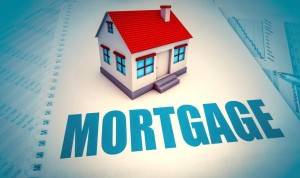Introduction
to Mortgage Sustainability in Ghana
Mortgage sustainability refers to the
ability of a housing finance system to provide long-term, affordable, and
accessible housing loans to individuals while maintaining economic stability
and minimizing risks to borrowers and lenders. In Ghana, where housing deficits
are a pressing issue, mortgage sustainability plays a pivotal role in bridging
the gap between housing demand and supply.
The
Importance of Mortgage Sustainability
In Ghana, the demand for affordable
housing continues to grow due to rapid urbanization, population growth, and
increasing middle-class aspirations. A sustainable mortgage system ensures:
- Affordability: Borrowers can access loans with
manageable repayment terms.
- Economic Stability: lenders
maintain healthy liquidity and reduce the risk of loan defaults.
- Inclusion: Diverse groups, including low- and
middle-income earners, can access housing finance.
- Social Development: Stable
housing options contribute to improved living standards and reduced
poverty.
Current
State of the Mortgage Market in Ghana
The mortgage market in Ghana remains
relatively underdeveloped, with key challenges such as:
- High Interest Rates: Mortgage
interest rates in Ghana are significantly higher than global averages,
often ranging between 20% and 30%.
- Limited Access: A large portion of the population,
especially those in informal sectors, struggles to meet the stringent
requirements for mortgage qualification.
- Short Loan Tenures: The average
loan tenure is typically 10–15 years, which increases monthly repayments
and limits affordability.
- Low Market Penetration: Mortgages
account for a small percentage of Ghana’s housing finance system, with
most home purchases financed through savings or family support.
Key
Pillars of Mortgage Sustainability
- Affordable Housing Development:
- Collaboration between the government and private
developers to construct affordable housing.
- Incentives such as tax breaks or subsidies for
developers who focus on low-income housing.
- Accessible mortgage financing:
- Development of tailored products for informal sector
workers who form a significant part of the economy.
- Reduction of upfront costs such as down payments and
legal fees to make mortgages more accessible.
- Regulatory Framework:
- Strengthened policies by the Bank of Ghana and the
Securities and Exchange Commission to enhance transparency and reduce
predatory lending practices.
- Introduction of mortgage insurance schemes to protect
both borrowers and lenders.
- Interest Rate Management:
- Encouraging financial institutions to offer
competitive rates through government-backed refinancing or guarantees.
- Promotion of fixed-rate mortgages to protect
borrowers from fluctuating interest rates.
- Partnerships and Innovations:
- Leveraging public-private partnerships to fund
large-scale housing projects.
- Adoption of digital solutions such as mobile money
integration to facilitate payments and reduce administrative bottlenecks.
Challenges
to Achieving Mortgage Sustainability
- Economic instability: fluctuations
in inflation and currency depreciation impact the cost of borrowing.
- Limited Data Availability: Poor credit
tracking systems make risk assessment challenging for lenders.
- Lack of Awareness: Many
potential borrowers are unaware of available mortgage products and how to
access them.
Opportunities
for Growth
- Government Initiatives: Programs
such as the National Housing Fund and Rent-to-Own schemes aim to expand
access to affordable housing.
- Foreign Investment:
Partnerships with international housing finance institutions can bring
expertise and funding to the sector.
- Improved financial inclusion: Increasing
access to credit for informal workers could significantly expand the
mortgage market.
Conclusion
Mortgage sustainability is a critical
component in addressing Ghana’s housing challenges. It requires a holistic
approach that involves policy reform, financial innovation, and collaboration
between stakeholders. By focusing on affordability, accessibility, and risk
management, Ghana can create a resilient mortgage system that supports
homeownership for all income groups, thereby fostering economic growth and
social equity.


